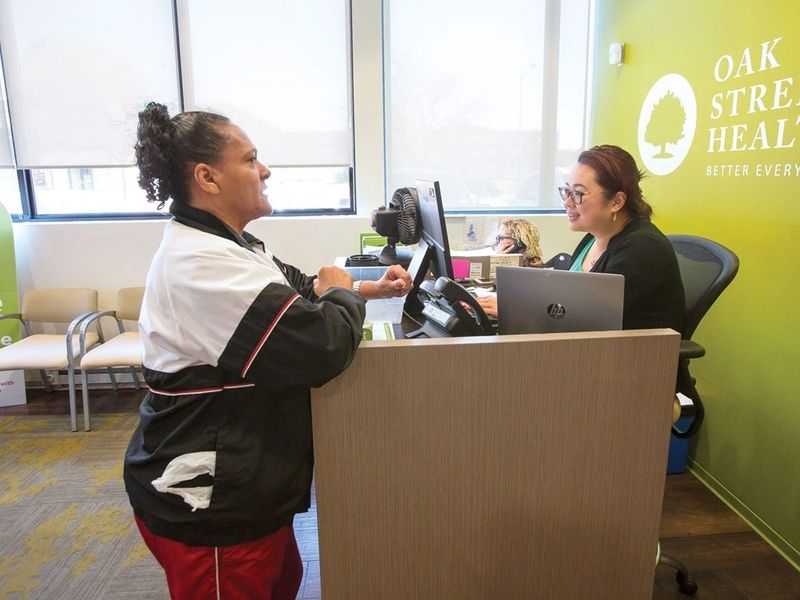
The AARP has named Oak Street Health its primary care provider of choice in a deal that reflects an evolving senior care market increasingly dominated by tech-enabled clinics operating under value-based care contracts.
Come Jan. 1, all Oak Street Health members will automatically receive free AARP memberships, said Dr. Griffin Myers, chief medical officer at the Chicago-based primary care network for adults on Medicare. The two organizations will also partner to create jointly branded events, as well as on patient quality and experience efforts.
“For the AARP to select Oak Street and to recommend us as the primary care home for their partners certainly is going to speed up our growth,” Myers said. Myers declined to disclose the financial terms of the deal. AARP, the Washington-based member services and lobbying not-for-profit, didn’t respond to an interview request.
The nine-year-old startup went public through a $328 million offering on a valuation of $9 billion last year. Oak Street Health now operates more than 100 centers across 18 states. The majority of its 110,000 members are low-income seniors living in medically underserved communities, Myers said. The AARP partnership comes as the national conversation around health equity rises and investment in senior-focused primary care grows.
Download Modern Healthcare’s app to stay informed when industry news breaks.
During the first quarter of this year, primary care tech startups brought in the second-most funding among all digital health companies, according to data from Rock Health.
In June, One Medical announced it would pay $2.1 billion to acquire competitor Iora Health, a deal that gives it a foothold in the lucrative Medicare Advantage market and facilitates its transition from fee-for-service payment. In July, Anthem announced it was partnering with the grocery chain Kroger to offer a jointly branded Medicare Advantage product next year. Anthem aims to reduce its enrollee acquisition costs by offering them access to convenient primary care. This year, Humana plans to open at least 30 new Centerwell clinics to offer primary care services to low-income seniors and open at least 200 more by next year.
“There is incredible competition for expanded Medicare Advantage market share,” said Matt Wolf, a senior healthcare analyst at RSM. “The more you’re able to expand your market share at a lower patient acquisition cost, the better position you’re in to make more money.”
By addressing seniors’ medical, social and emotional needs, these value-based clinics aim to achieve better health outcomes and lower costs.
“Oak Street would clearly want to do this because they want the brand value that AARP brings and the level of trust,” said Adam Block, an associate professor at New York Medical College. “AARP is trying to retain some relevance in providing seniors something that is important to them, which is healthcare. They’re trying to help them identify the right providers in an age of increasing complexity.”
The partnership is similar to the AARP and UnitedHealth Group’s jointly branded Medicare supplement plans, Block said. The branding advantages of that 24-year-old arrangement helped the insurer to become the largest carrier in the Medicare Advantage market, with about 7.5 million enrollees, Block said.
As the number of Medicare Advantage customers grows and the market becomes more lucrative, the AARP may be trying to stay ahead of the times, Block said.
Nearly 27 million people had Medicare Advantage plans, or 42% of all Medicare beneficiaries, as of July, according to the latest data from the Centers for Medicare and Medicaid Services. In four years, at least half of all eligible seniors will be enrolled in a privatized Medicare plan, offering a compelling growth opportunity for venture-backed health plans and providers that focus on caring for older adults, according to the Chartis Group.
